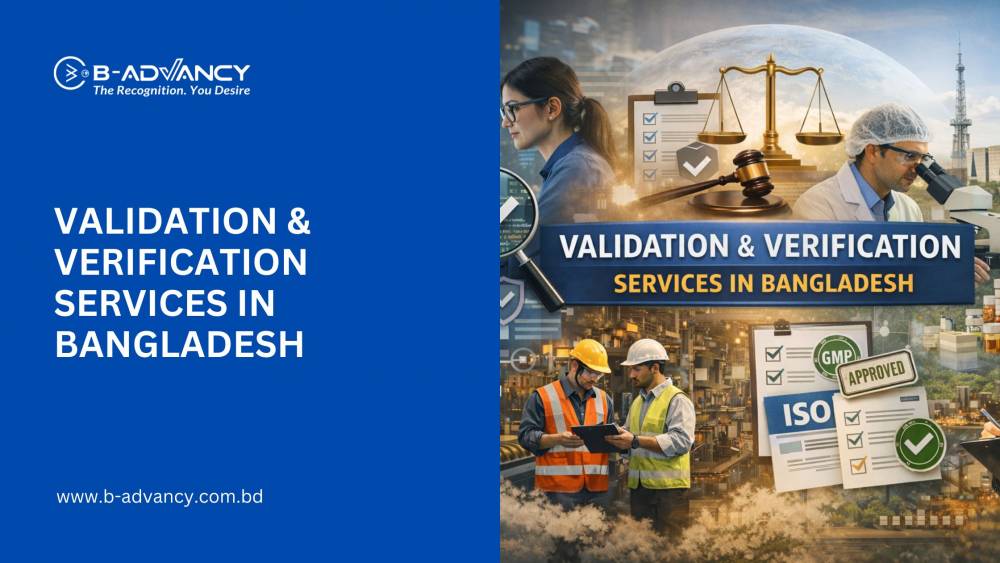Introduction:
In an era where globalization is reshaping the landscape of industries and institutions, the importance of international standards cannot be overstated. The International Organization for Standardization (ISO) sets benchmarks that foster efficiency, quality, and safety across various sectors. For institutions in Bangladesh, embracing ISO-related training is not just a choice but a necessity to stay competitive in the global arena.
ISO Standards in Bangladesh:
Before delving into the specific training requirements, it's crucial to understand the ISO standards relevant to institutions in Bangladesh. Some key standards include ISO 9001 for quality management, ISO 14001 for environmental management, and ISO 27001 for information security. These standards provide a framework for organizations to enhance their processes, minimize risks, and improve overall performance.
ISO 9001: Quality Management Training:
Quality is paramount in any institution's success. ISO 9001, the international standard for quality management, helps organizations ensure that their products and services consistently meet customer requirements. Training in ISO 9001 equips personnel with the knowledge and skills needed to implement quality management systems effectively. This includes understanding the principles of quality management, documentation procedures, and methods for continual improvement.
ISO 14001: Environmental Management Training:
As environmental concerns take center stage globally, institutions in Bangladesh must address their impact on the environment. ISO 14001 provides a systematic approach to managing environmental responsibilities. Training in ISO 14001 covers aspects such as environmental policy development, legal compliance, and strategies for reducing an institution's environmental footprint. This training is vital for organizations looking to align with sustainable practices and comply with international environmental standards.
ISO 27001: Information Security Training:
In an increasingly digitized world, protecting sensitive information is paramount. ISO 27001 is designed to help organizations establish and maintain effective information security management systems. Training in this standard involves understanding risk assessment, implementing security controls, and creating a culture of information security within the institution. Given the rising cybersecurity threats globally, ISO 27001 training is crucial for institutions to safeguard their data and maintain the trust of stakeholders.
Integrated Management Systems (IMS) Training:
While individual ISO standards are essential, many institutions in Bangladesh can benefit from integrating multiple standards into a cohesive management system. Training in Integrated Management Systems (IMS) enables organizations to streamline processes, reduce duplication of efforts, and enhance overall efficiency. IMS training is particularly beneficial for institutions seeking to address quality, environmental, and information security management simultaneously.
Local Context Considerations:
Institutions in Bangladesh should tailor ISO-related training to address specific challenges and opportunities within the local context. This involves incorporating cultural nuances, legal requirements, and industry-specific considerations into the training curriculum. Training programs should be designed to resonate with the unique needs of Bangladesh's institutions, ensuring practical and actionable insights that can be readily applied.
Government Support and Incentives:
The government of Bangladesh plays a crucial role in promoting ISO adoption. Institutions should explore available support mechanisms, such as subsidies, grants, or tax incentives, to facilitate ISO-related training initiatives. Government collaboration can help create a conducive environment for institutions to invest in training programs and foster a culture of continuous improvement.
Challenges and Solutions:
Implementing ISO-related training in institutions may face challenges such as resistance to change, resource constraints, and a lack of awareness. Overcoming these challenges requires a strategic approach, including effective communication, leadership commitment, and phased implementation. Training programs should be designed to address these challenges head-on, fostering a positive mindset towards ISO standards and their benefits.
Conclusion:
In conclusion, ISO-related training is an indispensable investment for institutions in Bangladesh. Whether focusing on quality, environmental management, information security, or integrated management systems, adherence to international standards enhances an institution's competitiveness and sustainability. By embracing ISO-related training, institutions can fortify their foundations, meet global benchmarks, and contribute to the nation's progress on the international stage.





































































































































































































